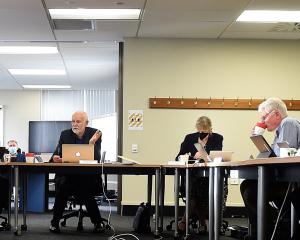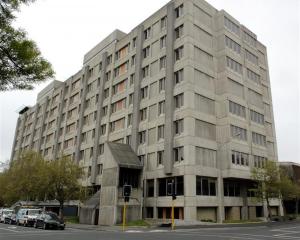In another move to cut spending on the elderly in Otago and Southland, people referred to rest-homes in future will be "stood down" for about six months to see if they can be supported at home.
No person will be able to access residential care until all community support options have "demonstrably failed", a report to tomorrow's Otago District Health Board meeting says.
The measure is designed to reduce rest-home use, which in Otago is still 28% above the national average.
The Otago District Health Board has been trying to bring down rest-home use for several years.
Although 130 fewer people are in this type of care than four years ago, it wants further reductions.
Under the new strategy, when a person is assessed as "being at risk of requiring residential care", their entry to a rest-home will be delayed to allow home-based support services and board staff to explore how the person could be supported at home.
This could require a broader range of services than traditional home-based services, such as nursing input.
It would have to cost less than residential care, a report to go before the Otago board tomorrow says.
It costs the board, on average, $475 a week for a rest-home bed, with the rest of the $700 bill coming from a resident's superannuation or other income.
A section of the report indicating the levels of care in the home shows the highest level could cost up to $600 a week.
During the "stand-down" period, the person would be monitored to see if the support package was successful.
If it was, the person would continue to be supported at home, but if not there would be a referral to residential care.
Formal discussions would take place between board staff and the home-based service provider for each person.
Communication with all those involved with referring patients to rest-homes would be required, the report said.
"It is important that these referrers do not unnecessarily raise expectations in the minds of clients and their families as to the availability of residential care when other support options have not been explored."
The report said it was difficult to forecast how successful this strategy would be, but it has set targets reducing the number of new monthly admissions in Otago by four to 19 and in Southland by two to 10.
This would mean that by June, the number of occupied beds in Otago would be down to 715, from 731 last month, and in Southland from 393 to 385.
National rates suggest Otago should have 600 occupied beds and Southland 325.
The report notes that supporting people at home longer would inevitably impact on the amount of home-based support provided, particularly for personal care.
The report said growth in the amount of personal care provided in the past 18 months had been relatively steep.
It would be difficult to reduce this in the short term while housework help and residential care were being reduced.












